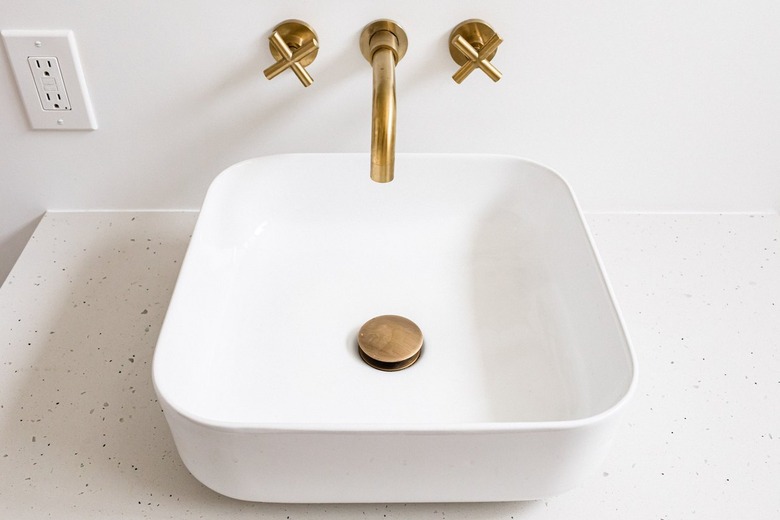How To Get Rid Of Smelly Bathroom Sink Drain Odors
We may receive a commission on purchases made from links.
Keeping your bathroom smelling its best can be a challenge. You need to scrub the toilet, regularly empty the trash bin, and use an odor-eliminating spray to cover the smell after someone uses the facilities. Even then, you may still occasionally notice an odor developing from your sink. There are many reasons a bathroom sink may stink, so you need to troubleshoot before eliminating the foul odor. Here's what to do.
Identify the Problem
Identify the Problem
First, see if you can identify the reason for your stinky drain. If the sink basin is filthy, that might be the problem, and a proper scrub with a bleach-based cleanser could solve the issue. If the basin isn't the issue, take a good sniff of the offending odor. This part of the job might not be pleasant, but it is essential in deciding the proper steps to take to fix the issue.
Eliminate Sewage Odors in Sinks
Eliminate Sewage Odors in Sinks
When the odor smells like rotting eggs, that's a good sign that you're smelling sewage. That sewage smell typically means that either your P-trap is dry, allowing sewage gases to float up into your drain, or your vent is clogged, meaning the sewer gases have nowhere to escape, so they end up in your home. If you rarely use a sink and notice that it smells like sewage, run the water for a few minutes to see if the odor goes away once the P-trap's moisture barrier has been reestablished. On the other hand, if you regularly use the sink or if adding water to the P-trap doesn't help, call a plumber because you may have a venting problem requiring professional assistance.
Diagnose Biofilm Buildup
Diagnose Biofilm Buildup
If you don't notice a sewage smell, you're likely smelling something like musty, rotting vegetables. This odor is caused by bacteria buildup, which often grows thick enough to coat your pipes with a black stinky slime called "biofilm." To confirm you have biofilm buildup in your sink, disconnect the sink stopper and remove it. If it's covered in black film, your pipes are coated in biofilm.
Home Remedies for Drain Bacteria
Home Remedies for Drain Bacteria
While commercial drain cleaners can eliminate biofilm, you can also try home remedies.
- Flush
your pipes with boiling water. - Sprinkle 1 cup of baking soda down the
drain followed by 1 cup of vinegar. The chemical reaction can agitate the bacteria lodged in the drain. - After 10 minutes, run more boiling
water down the drain to further dislodge the slime.
If this fails, a minor clog of some kind may be trapping slime and odor. If you have a snake drain, use it to remove any problematic clogs. Alternatively, a wire coat hanger can remove things like hair clogs if you bend it straight and add a small hook at the end. After removing clogs, try the boiling water, baking soda, and vinegar cleaning method again.
When all else fails, consider taking your drainpipes apart and cleaning them manually by forcing a paper towel through them.
